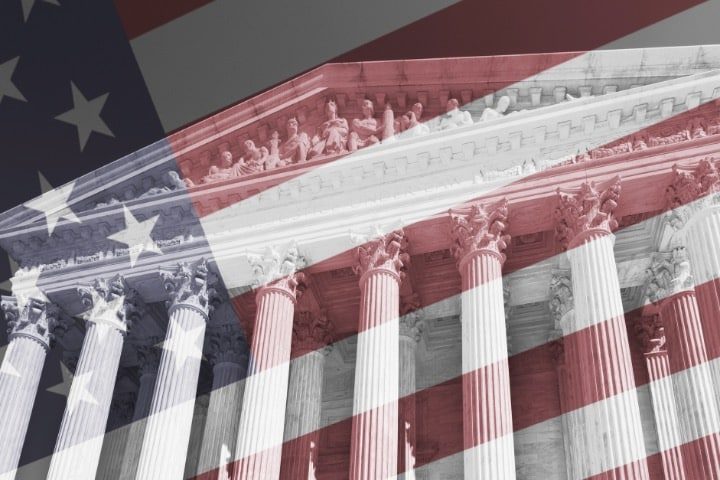
On Friday, the United States Supreme Court greatly limited the ability of regulatory agencies such as the Environmental Protection Agency (EPA) to essentially fill in the details when laws are unclear. The 40-year-old Chevron decision effectively granted the regulatory state — which consists of unelected bureaucrats — power to broadly interpret laws and, in effect, create laws based upon those interpretations.
But, in today’s 6-3 decision in Loper Bright Enterprises v. Raimondo, the Court’s conservative wing voted to overturn Chevron U. S. A. Inc. v. Natural Resources Defense Council.
“The Administrative Procedure Act requires courts to exercise their independent judgment in deciding whether an agency has acted within its statutory authority, and courts may not defer to an agency interpretation of the law simply because a statute is ambiguous; Chevron is overruled,” wrote Chief Justice John Roberts in the decision.
Left-wing court watchers claim the decision is a large gift to corporations and could result in numerous deaths due to the Deep State’s inability to intervene against “bad laws.”
California Democratic Rep. Adam Schiff was immediately worried about how the decision would affect the EPA’s ability to make climate change law.
“This partisan Supreme Court just shredded another precedent, overturning the Chevron decision and weakening our ability to combat the climate crisis, hold corporations accountable, and much more,” Schiff posted on X. “Our people and our planet will feel the consequences.”
Conservatives are overjoyed at the news, with some considering it an opening salvo in the battle against the Deep State.
“HUGE WINNING….SCOTUS overturns 1984 Chevron decision,” posted Steve Milloy, a climate realist with JunkScience.com. “Regulatory agencies don’t get to make up law anymore. @realDonaldTrump made this possible!”
The Chevron decision held that government agencies should be given wide discretion when there is ambiguity in law. Today’s SCOTUS ruling found that those decisions rightly are the purview of courts, not bureaucrats.
“Courts must exercise their independent judgment in deciding whether an agency has acted within its statutory authority,” Roberts wrote.
The rise of the regulatory state has been going on since the New Deal of the ’30s, which led to a bloated government full of alphabet agencies. The Court recognized this.
“During the ‘rapid expansion of the administrative process’ that took place during the New Deal era … the Court often treated agency determinations of fact as binding on the courts, provided that there was ‘evidence to support the findings,'” Roberts wrote. “But the Court did not extend similar deference to agency resolutions of questions of law.”
In concurrence, Justice Neil Gorsuch claimed that Chevron was simply bad precedent in that it relied on the opinions of regulators, which usually echoed the wants of the executive branch. “Beginning in the mid-1980s, however, this Court experimented with a radically different approach. Applying Chevron deference, judges began deferring to the views of executive agency officials about the meaning of federal statutes.” Gorsuch wrote. “With time, the error of this approach became widely appreciated. So much so that this Court has refused to apply Chevron deference since 2016.”
Justice Elena Kagan, who dissented along with Justices Sonia Sotomayor and Ketanji Brown Jackson, wasn’t so convinced, and argued that “if the court finds, at the end of its interpretive work, that Congress has left an ambiguity or gap, then a choice must be made. Who should give content to a statute when Congress’s instructions have run out? Should it be a court? Or should it be the agency Congress has charged with administering the statute?”
Kagan argued that Chevron “has become part of the warp and woof of modern government, supporting regulatory efforts of all kinds—to name a few, keeping air and water clean, food and drugs safe, and financial markets honest.” “The majority is sanguine; I am not so much,” she wrote.
Any victory in the war against the Deep State must be appreciated, and this is potentially a huge win. While the EPA and other climate-change friendly agencies attempt to regulate gas stoves out of existence and create other onerous regulations, they now have one less arrow in their quiver.




